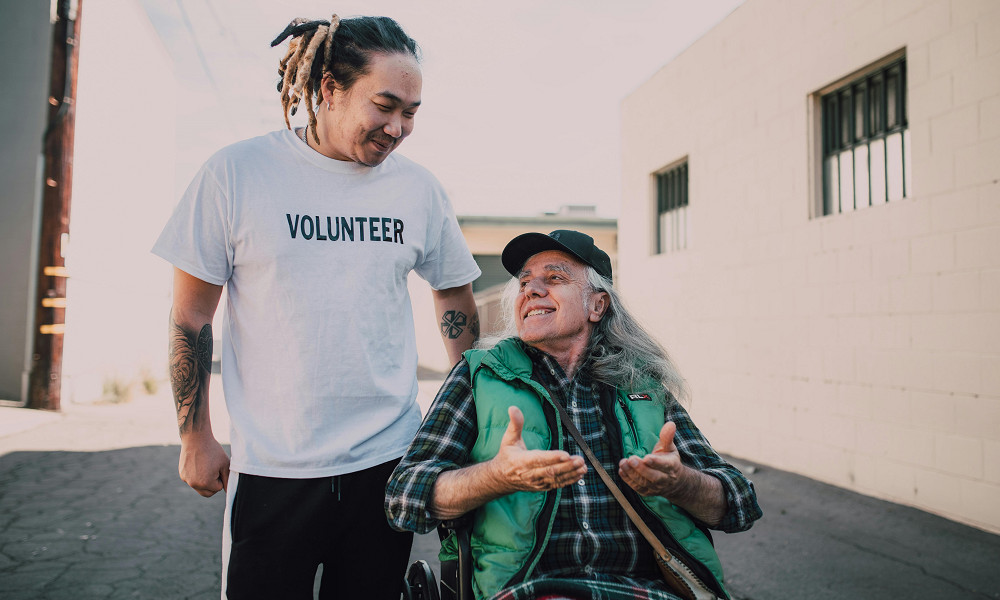Reviews
How Disability Care Enhances Independence and Well-Being in Everyday Life

How can individuals with disabilities lead independent and fulfilling lives while receiving the necessary support? The answer lies in personalised services that foster autonomy while ensuring well-being. Many people require tailored assistance that respects their choices, supports daily routines, and promotes social inclusion.
Access to quality disability care plays a significant role in empowering individuals by providing the right support at the right time. Whether it involves assistance with daily activities, community participation, or skill development, these services enable individuals to take control of their lives while maintaining dignity and independence.
Personalised Support for Everyday Activities
Daily routines, such as cooking, cleaning, and personal hygiene, are essential for maintaining an independent lifestyle. With customised assistance, individuals receive support that aligns with their specific needs, ensuring they can manage these tasks while retaining as much control as possible. Trained professionals offer practical help in a way that encourages self-sufficiency.
Whether someone needs occasional assistance or continuous support, services are designed to enhance capabilities rather than replace them. This approach fosters confidence and helps individuals maintain their preferred way of living. Adaptive tools and technology, such as modified kitchen appliances or assistive communication devices, further support independence by enabling individuals to perform tasks with greater ease.
Social Inclusion and Community Participation
Being part of a community is vital for emotional and mental well-being. Accessing support services enables individuals to participate in social activities, attend events, and engage with peers without limitations. From recreational activities to volunteer opportunities, these experiences contribute to a sense of belonging.
Support workers play a crucial role in facilitating these interactions by providing mobility assistance, transport services, or companionship. Encouraging participation in the community strengthens social connections and enhances overall quality of life. Social engagement also improves confidence and provides individuals with meaningful interactions that help combat isolation.
Skill Development for Greater Independence
Gaining new skills is essential for personal growth and self-reliance. Many support services focus on helping individuals develop skills that contribute to their independence, such as cooking, financial management, or using technology. By providing guidance and structured learning opportunities, support workers empower individuals to handle everyday tasks with confidence.
Whether it involves developing communication skills or learning how to navigate public transport, tailored training makes a significant difference in achieving long-term independence. These opportunities not only provide practical skills but also boost self-esteem, enabling individuals to take on new challenges and responsibilities.
Flexible and Tailored Support Plans
Every individual has unique needs, and disability care services are designed to be flexible. Whether someone requires assistance for a few hours or full-time support, services are adaptable to fit changing circumstances. Personalised care plans ensure that individuals receive the right level of assistance without feeling restricted.
This flexibility allows people to live on their own terms, adjusting support as needed to match their lifestyle and evolving goals. For instance, a person may start with basic mobility support but later require help with employment-related activities, showcasing how services evolve to meet ongoing needs.
Mental and Emotional Well-Being
Beyond physical assistance, mental and emotional support is just as important. A strong support system, including carers and community networks, helps individuals maintain positive mental health. Engagement in social activities, encouragement from support workers, and the ability to express personal choices all contribute to emotional stability.
A well-balanced approach to care ensures that individuals feel valued, heard, and supported in all aspects of life. Additionally, mental well-being services, such as counselling and peer support groups, provide a safe space for individuals to share experiences and build resilience.
Career and Learning Support for Everyday Success
Securing employment or continuing education is a significant step towards independence. Support services provide career guidance, vocational training, and job placement assistance, ensuring that individuals can pursue meaningful careers.
Workplace adjustments, such as adaptive technologies and flexible schedules, help individuals succeed in their chosen fields. Similarly, access to educational support, including tutoring and modified learning materials, enables individuals to achieve academic goals. With the right resources, many individuals can build successful careers and lead self-sufficient lives.
Technology and Assistive Devices for Greater Autonomy
For people with disabilities, technology is essential to increasing their independence. Assistive devices, ranging from mobility aids to speech recognition software, empower individuals to perform tasks that might otherwise be challenging.
Smart home technology, such as voice-activated lighting and automated door openers, enables individuals to manage their living spaces with ease. These advancements improve accessibility and reduce the need for constant assistance, promoting a greater sense of control over daily life.
True independence comes from having the right support to live life on one’s own terms. Disability care is not just about assistance—it is about enabling individuals to shape their daily experiences with confidence and dignity. With access to flexible services, innovative solutions, and community engagement, individuals can take charge of their lives while feeling empowered and valued. Every step towards greater autonomy reinforces the idea that support should uplift, not limit, those who seek to live life to the fullest.

-

 World1 week ago
World1 week agoEthiopian volcano erupts for first time in thousands of years
-

 Health2 days ago
Health2 days ago8 kittens die of H5N1 bird flu in the Netherlands
-

 Legal7 days ago
Legal7 days agoUtah Amber Alert: Jessika Francisco abducted by sex offender in Ogden
-

 US News6 days ago
US News6 days agoExplosion destroys home in Oakland, Maine; at least 1 injured
-

 Health7 days ago
Health7 days agoMexico’s September human bird flu case confirmed as H5N2
-

 Legal3 days ago
Legal3 days ago15 people shot, 4 killed, at birthday party in Stockton, California
-

 World1 week ago
World1 week agoWoman killed, man seriously injured in shark attack on Australia’s NSW coast
-

 US News2 days ago
US News2 days agoFire breaks out at Raleigh Convention Center in North Carolina




